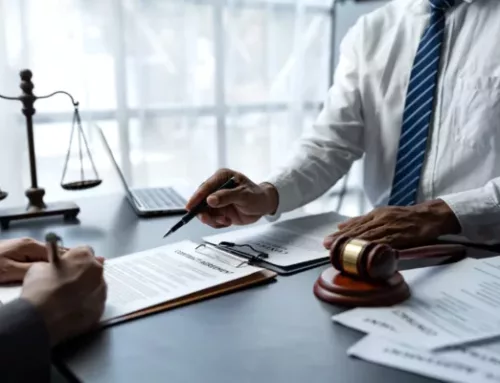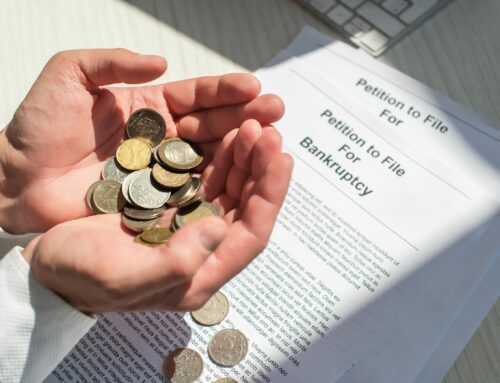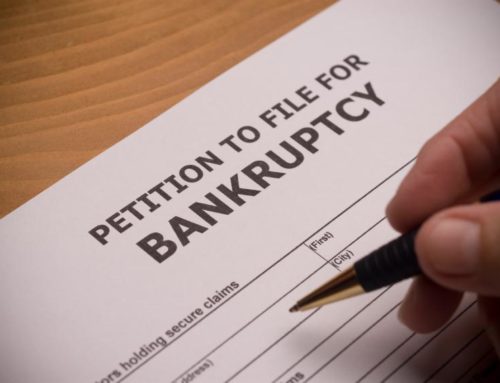Bankruptcy can temporarily blemish your credit report, but it does give you a fresh start as well. If you’re unable to pay your debts because of serious financial distress, start thinking about filing for bankruptcy. To make an informed decision, consult a bankruptcy attorney for legal advice on your situation.
The Right Bankruptcy Chapter
The United States bankruptcy code provides different types of bankruptcy. A personal bankruptcy case is usually filed under Chapter 7 or Chapter 13. If you’re considering filing a bankruptcy petition, you should look into the distinct benefits of each chapter, as well as the requirements to file under them.
Basic Information on Chapter 7
 Referred to as liquidation bankruptcy, this bankruptcy option has the debtor selling certain assets to pay back creditors. It involves a short process, generally lasting no more than three to four months until filers get their bankruptcy discharge. It lingers on your credit report for as long as ten years.
Referred to as liquidation bankruptcy, this bankruptcy option has the debtor selling certain assets to pay back creditors. It involves a short process, generally lasting no more than three to four months until filers get their bankruptcy discharge. It lingers on your credit report for as long as ten years.
Being a quicker bankruptcy process, Chapter 7 has no provision for a repayment plan for it to stop foreclosure or repossession. It does allow you to keep exempt property. You would have to verify which of your belongings are exempted in West Virginia because bankruptcy exemptions differ from state to state.
Basic Information on Chapter 13
Known as reorganization bankruptcy, this process allows debtors to craft and propose a repayment plan that will allow them to keep their property, provided that they abide by the terms of their plan. Chapter 13 bankruptcy cases take three to five years to complete and are only available to individual debtors, not businesses. They stay on credit reports for up to seven years.
Chapter 13 bankruptcy filings can prevent foreclosure as well as the seizure of assets as long the filers make good on the repayment plan. This means that if you file under Chapter 13, you have to pay your debts in monthly installments to a bankruptcy trustee for you to reap this benefit.
Step-by-Step Guide to Each Process
Both Chapter 7 and Chapter 13 bankruptcy proceedings involve numerous stages. They are detailed in the following.
Chapter 7 Process
- Filing – Correctly fill out bankruptcy forms and then file for bankruptcy under Chapter 7 with the bankruptcy court.
- Fee payment – Pay the set of court fees that presently sum up to $335. This includes the filing fee and the administrative fee, as well as the trustee surcharge.
- Meeting of Creditors – Creditors tend to skip this meeting, but you have to attend so the trustee can review your bankruptcy case and interview you.
- Addressing secured debts – Arrange payment of debts with your secured creditors before the discharge of debts in order to hold on to attached property.
- Discharge – The bankruptcy judge verifies that all your dischargeable debts have been recognized.
Chapter 13 Process
- Filing – Submit a Chapter 13 petition for bankruptcy with the court.
- Fee payment – Pay the current total of $310 bankruptcy fees and get the automatic stay stopping creditors and collection agencies from their debt collection attempts.
- Submission of plan – Provide the trustee with your repayment plan and the relevant documents, including your tax returns.
- Initial payments – Start paying according to your repayment plan within 30 days of filing.
- Creditors meeting – This is mainly an interview with the trustee. It’s possible for a creditor to show up and challenge the plan.
- Confirmation hearing – The court approves your final repayment plan.
- Plan execution – Carry out the terms of your repayment plan and once you’ve fulfilled all of them, you can get your bankruptcy discharge.
Address Your Financial Problems and Call a West Virginia Bankruptcy Attorney Now!
While you’re not required to hire a bankruptcy lawyer in order to file bankruptcy, it’s generally the smart course to take. This is especially true for filers with complex cases or for those without the time to take care of the process by themselves.
As a rule, bankruptcies proceed more smoothly with assistance from bankruptcy lawyers. Their help is useful in accomplishing forms and filing them with the court, addressing difficult creditors, representing you in court and meetings, and generally protecting your rights.
The effects of bankruptcy do linger, so you want to do it correctly and strategically from the start. To see about getting legal guidance for your case, contact us at Thomas E. McIntire and Associates, L.C. and speak with an experienced West Virginia bankruptcy attorney.





